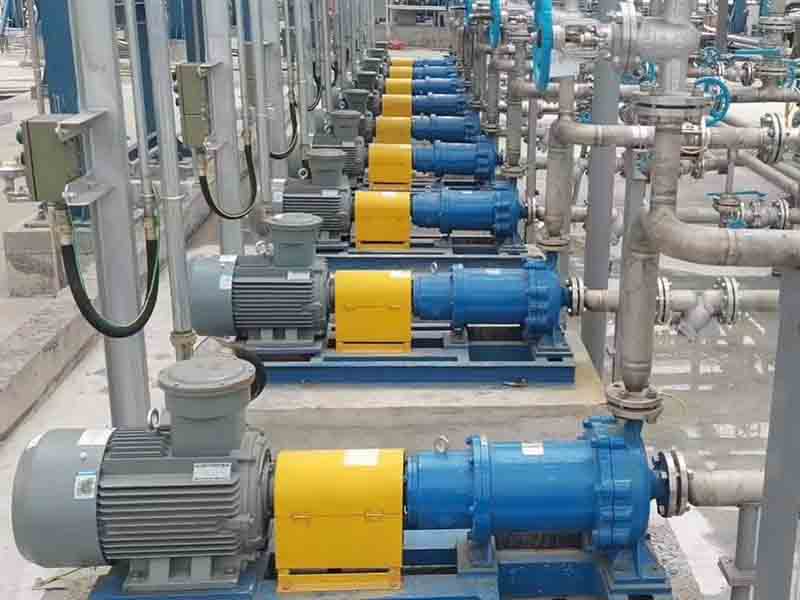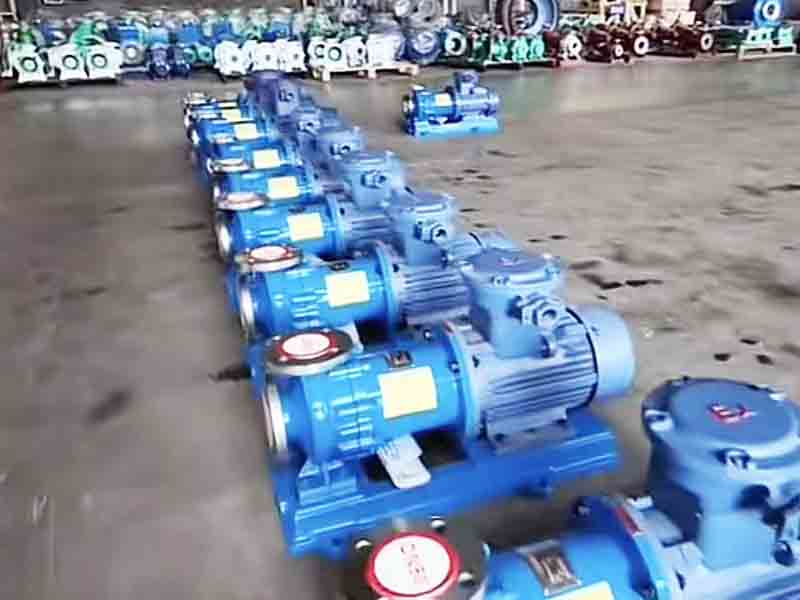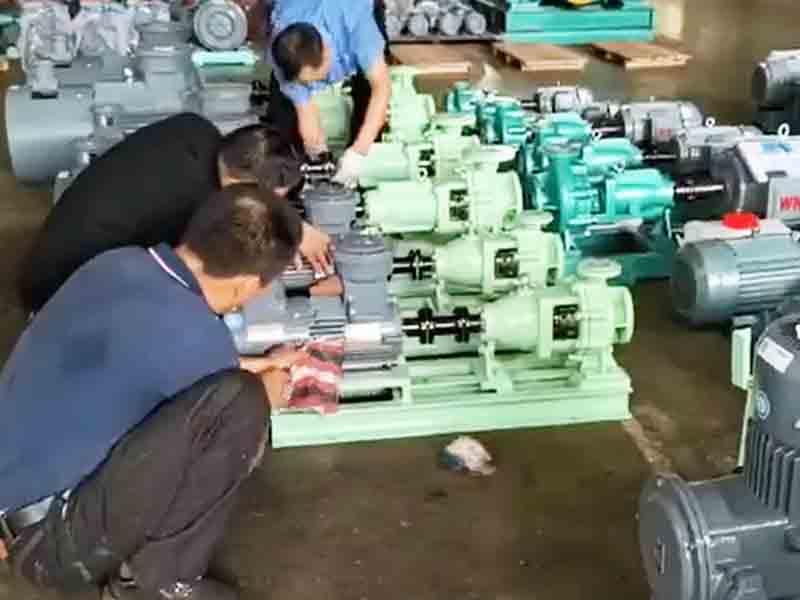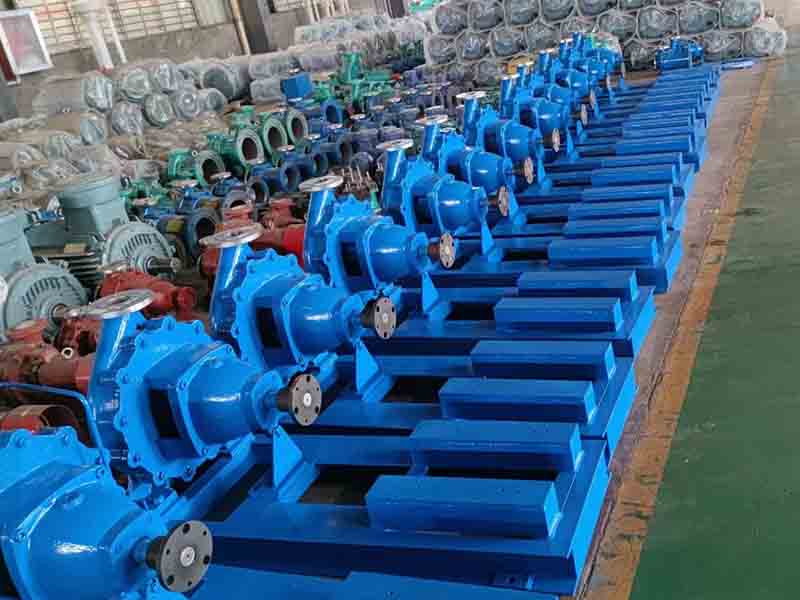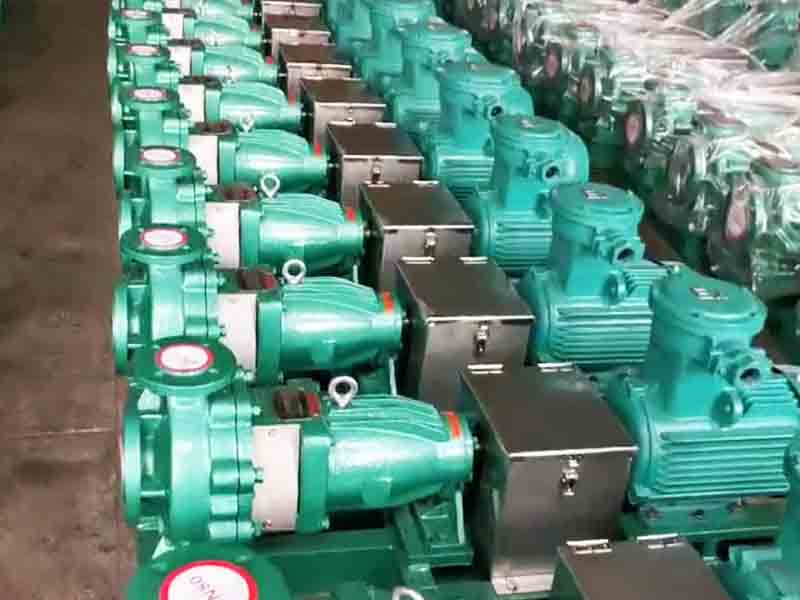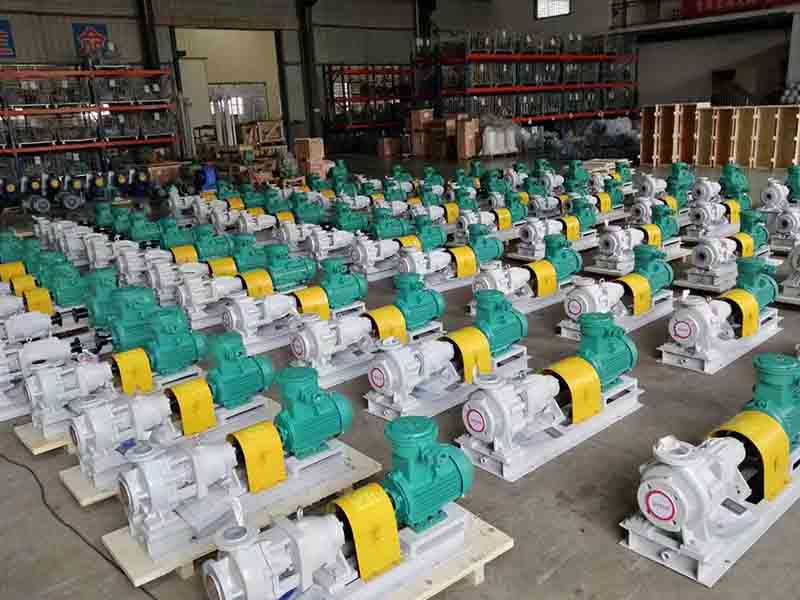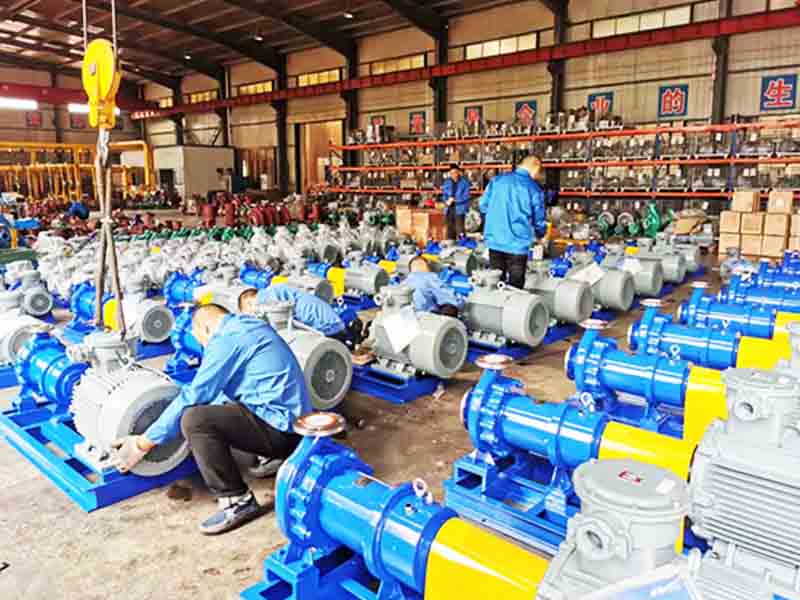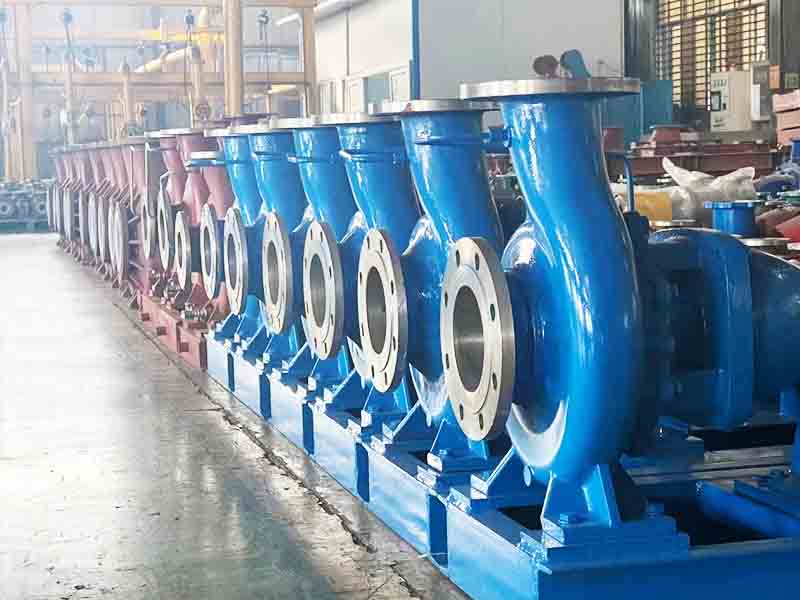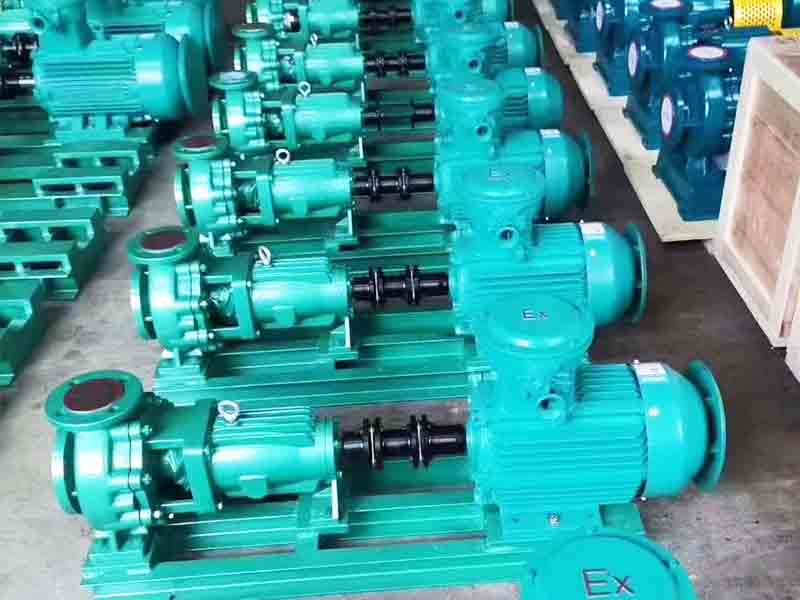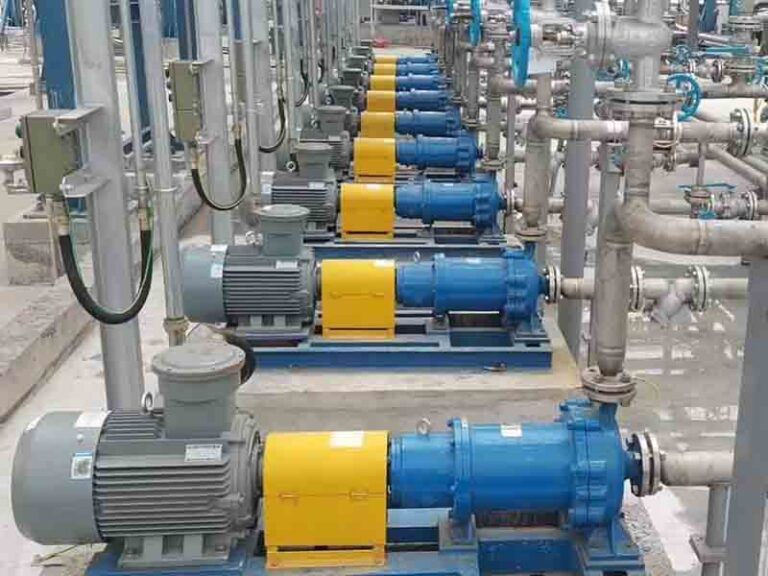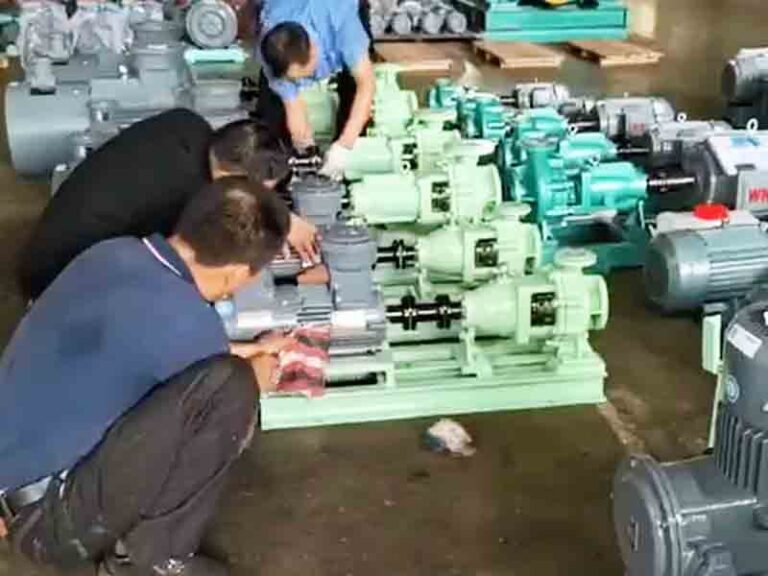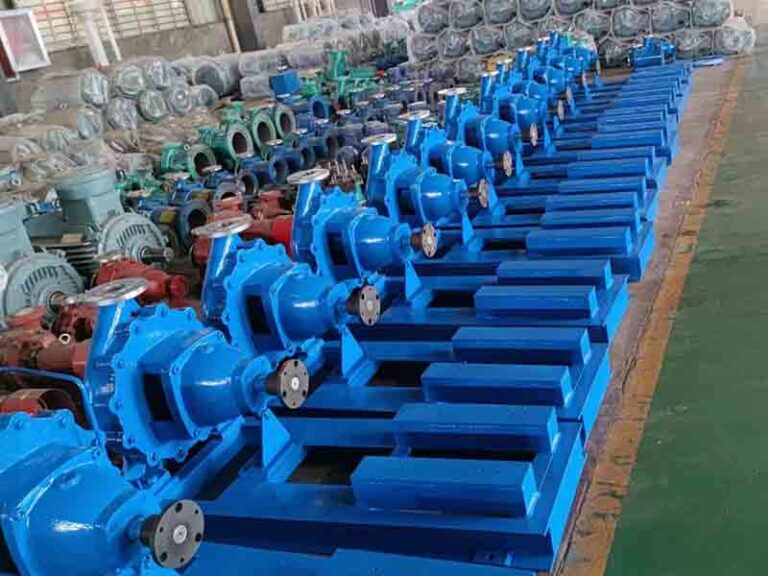1. The basic structure of a magnetic pump
Impeller
The impeller is the core part of the centrifugal pump. It has high speed and high output. The blades on the impeller play an important role in the pump. The impeller should pass the test of static balance before assembly.
Pump body
The pump body, also called the pump casing, is the most important part of the pump. It supports and fixes the components and connects to the bracket for installing bearings.
Pump shaft
The pump shaft connects the motor via a coupling. It transmits the motor’s torque to the impeller, and it is the main part that transmits mechanical energy.
Bearing
The bearing is a component that supports the pump shaft. The water pump’s bearing temperature reaches 85 degrees. It usually runs at 60 degrees. If the level is high, we must promptly find and address the cause.
Sealing ring
If the gap is large between the impeller inlet and the pump casing, water will flow from the pump’s high-pressure area to the low-pressure area through the gap. This will reduce the pump’s water output and efficiency.

2. The working principle of an industrial pump
The impeller drives the liquid to rotate at high speed. This creates a centrifugal force in the liquid. At the same time, the blade flow path throws it toward the impeller port. This forms a low pressure at the center of the impeller inlet. It causes the liquid to flow without interruption.
This keeps the pump working, sucking in liquid while discharging it. Magnetic pumps are designed based on the principle of magnetic force.
The high-speed rotating impeller blades drive the water to spin and throw it out. This achieves the goal of transporting it. Magnetic pumps come in many types. They can be civil or industrial, based on use.
They can be clean water, impurity, or corrosion-resistant pumps, based on the medium they convey.
3. Advantages of magnetic pumps
Simple and compact structure. For the same flow, magnetic pumps are better than reciprocating ones. They are smaller, lighter, and use less material. They also need no stronger foundations. So, they are cheaper to make and install.
It can run at high speed and can connect directly with a 2-pole or 4-pole motor. The transmission structure of a centrifugal pump is very simple. It is easy to install and operate.
There is no valve in the magnetic pump, so it is suitable for conveying suspensions. Its special design can also convey suspensions of large solids.
The materials of the pump resist chemical reactions. They can convey corrosive solutions.
Magnetic pumps have a simple structure and few parts. They are durable, low-cost to maintain, and easy to manage. They also have few failures and reliable operation.
The discharge valve can adjust the output. It can close completely. There is no risk of unlimited pressure head rise.
Magnetic pumps are best for moving large amounts of liquid. They do not need to generate much pressure.
The discharge is uniform, and there is no pulse phenomenon.
4. Disadvantages of chemical pumps
It can’t supply a small flow and high pressure. It’s inefficient and limited.
If the design is not perfect or the operation is improper, like with milk, it is easy to produce foam. This will affect the next process.
If the installation is not proper, an “air binding” phenomenon will occur.
The efficiency is also lower than that of reciprocating pumps.

5. Magnetic pump applications
A magnetic pump is complex. It has a high noise level, a complex structure, and a long service life.? A? also requires high power and consumes a lot of energy. It generates pressure through rotation. It finds application in many industries, including process, metallurgy, pharmaceuticals, food, electricity, construction, petrochemicals, and environmental protection.
You can use magnetic pumps for sewage treatment. Their large flow, high pressure, small reflux, low noise, and low energy consumption contribute to their widespread use in sewage treatment. They achieve the best results.
Magnetic pumps are the primary type of pump used in thermal power plants. Magnetic pumps can withstand high temperatures in molten metal. So, this water pump can extract hot water, condensed water, and waste hot water. You can also use it with steam generators.
Also, industries in the petrochemical field use magnetic pumps. Refining, filtering, and processing petroleum require magnetic pumps. Magnetic pumps are compact, high-flow, and low-noise. They meet modern industry’s high-quality demands. They are used extensively in the preparation of automobile fuel, gasoline mixing, lubricating oil production, fuel oil desalination, and other processes.
Magnetic pumps in the power field can also be used for fourth. In hydropower, they raise riverbed water to drive a turbine and generate electricity. The high efficiency and low noise of centrifugal pumps contribute to their widespread use in the water treatment system of power plants.
We also can use centrifugal pumps in the chemical industry. Magnetic pumps are widely used in the chemical industry. They need high pressure and flow. Magnetic pumps boost flexible materials made of stainless steel, and aluminum alloy, and are resistant to acid and alkali, which makes them suitable for various bile processes and allows for widespread use in industries such as nickel refining, sulfur separation, and petroleum processing.
